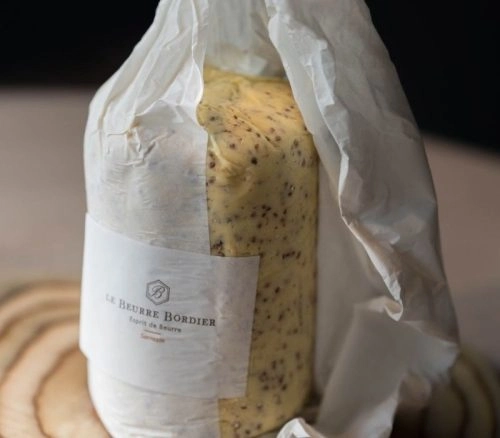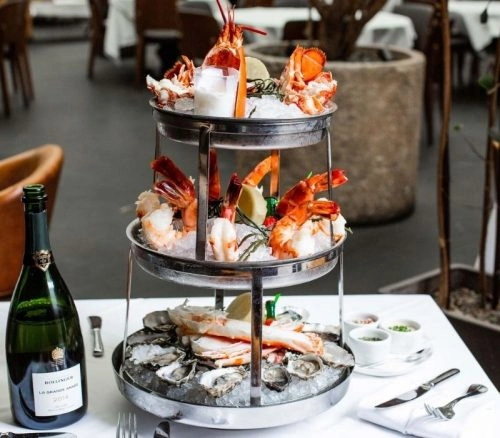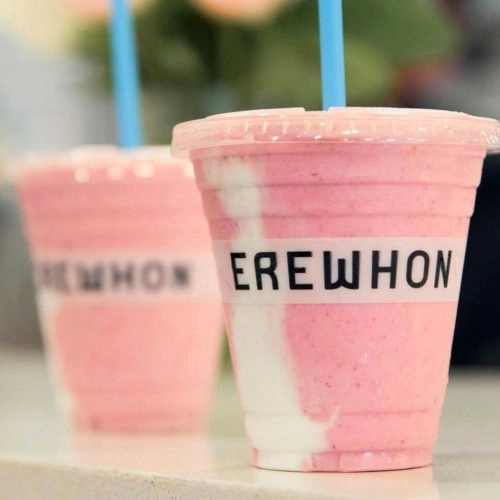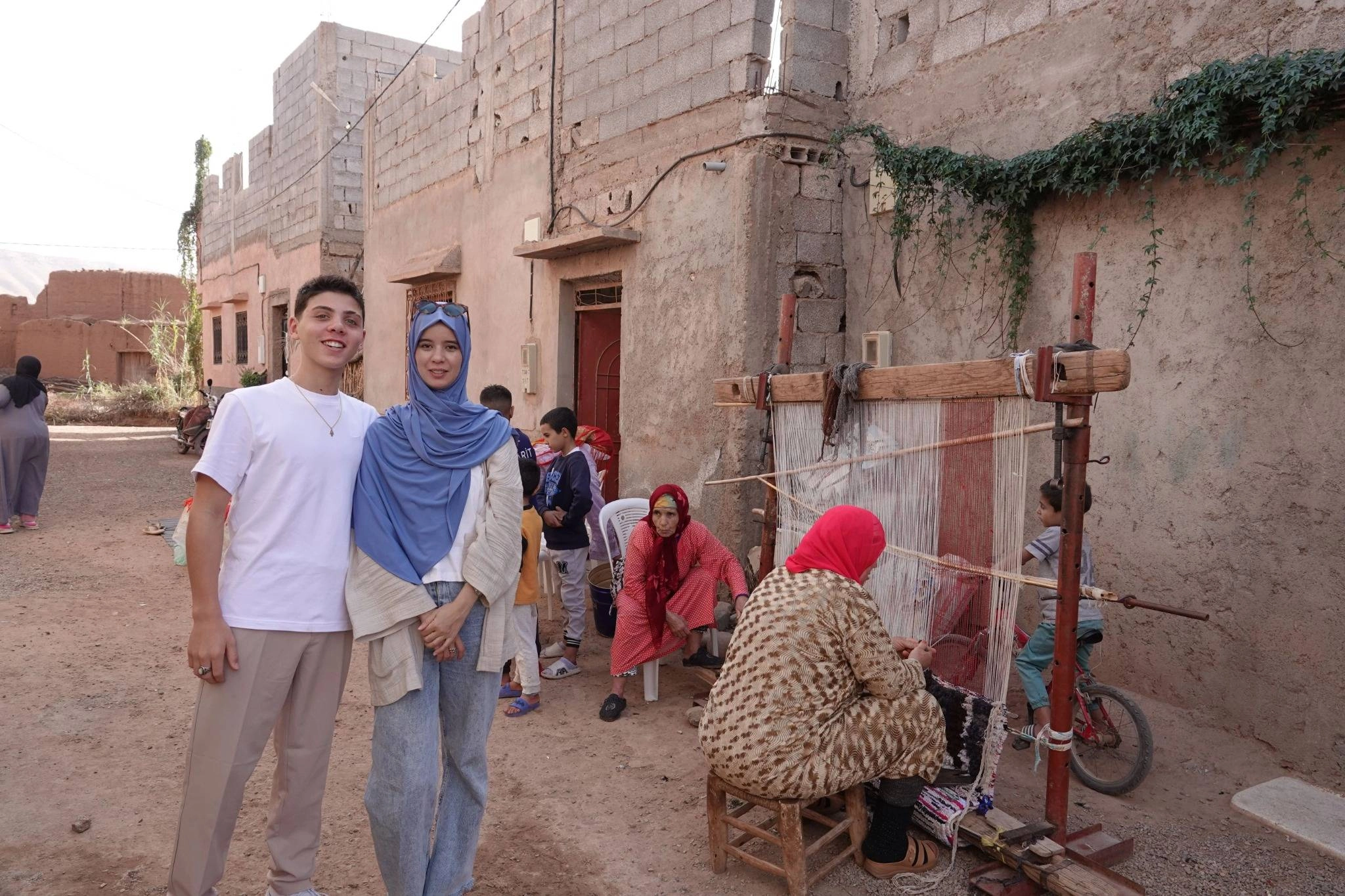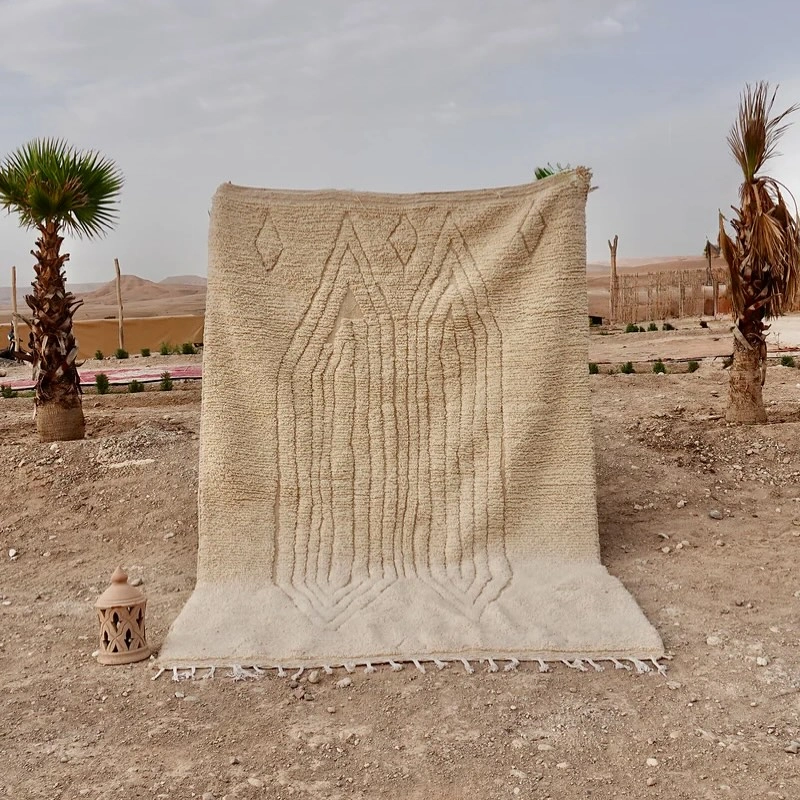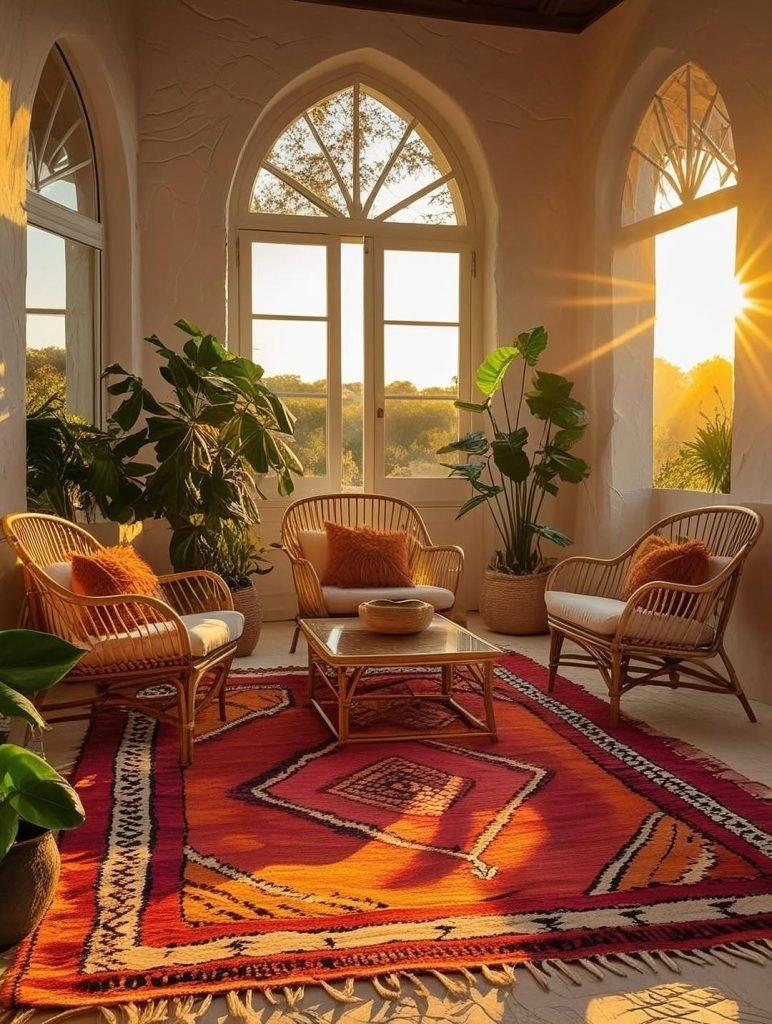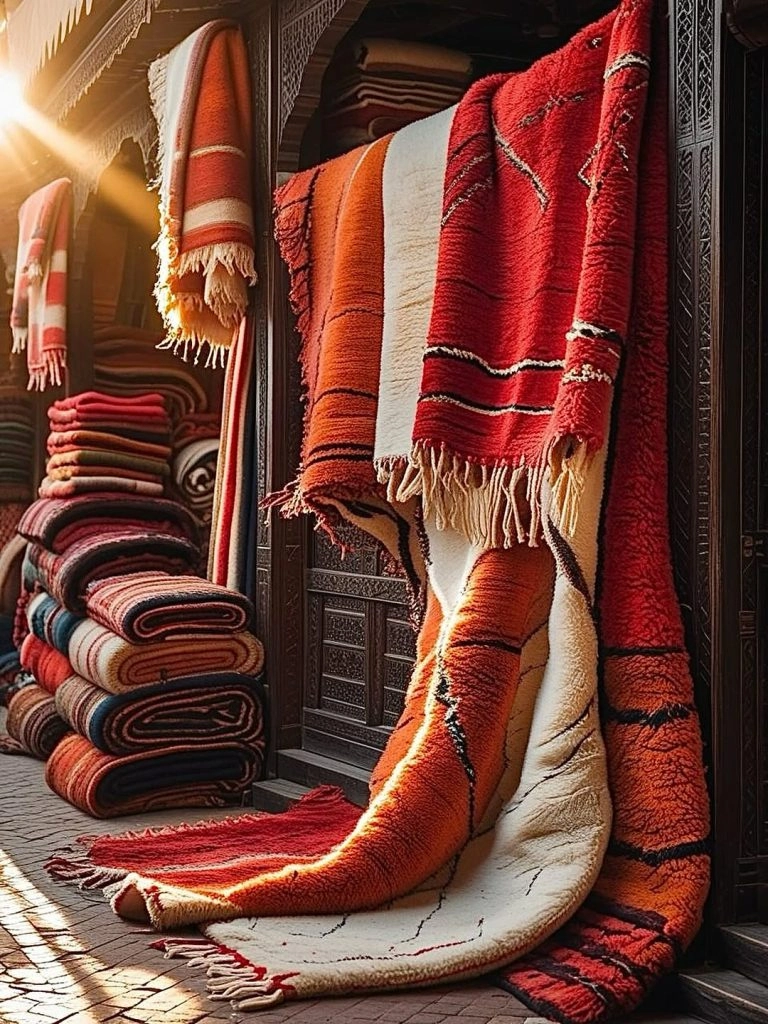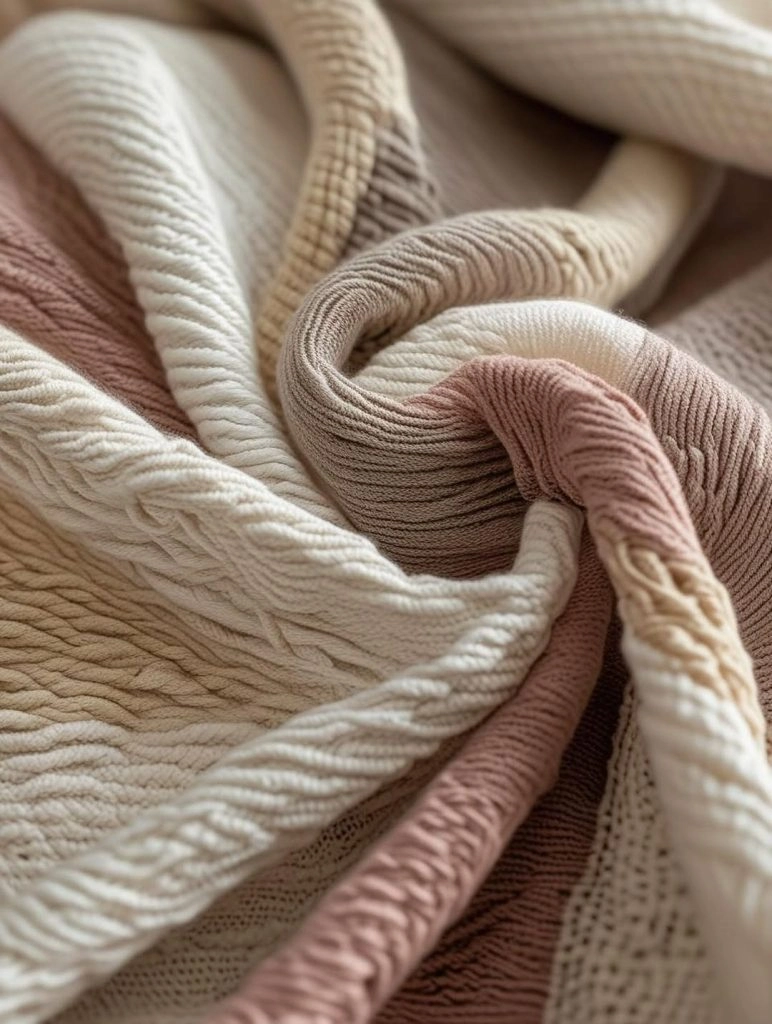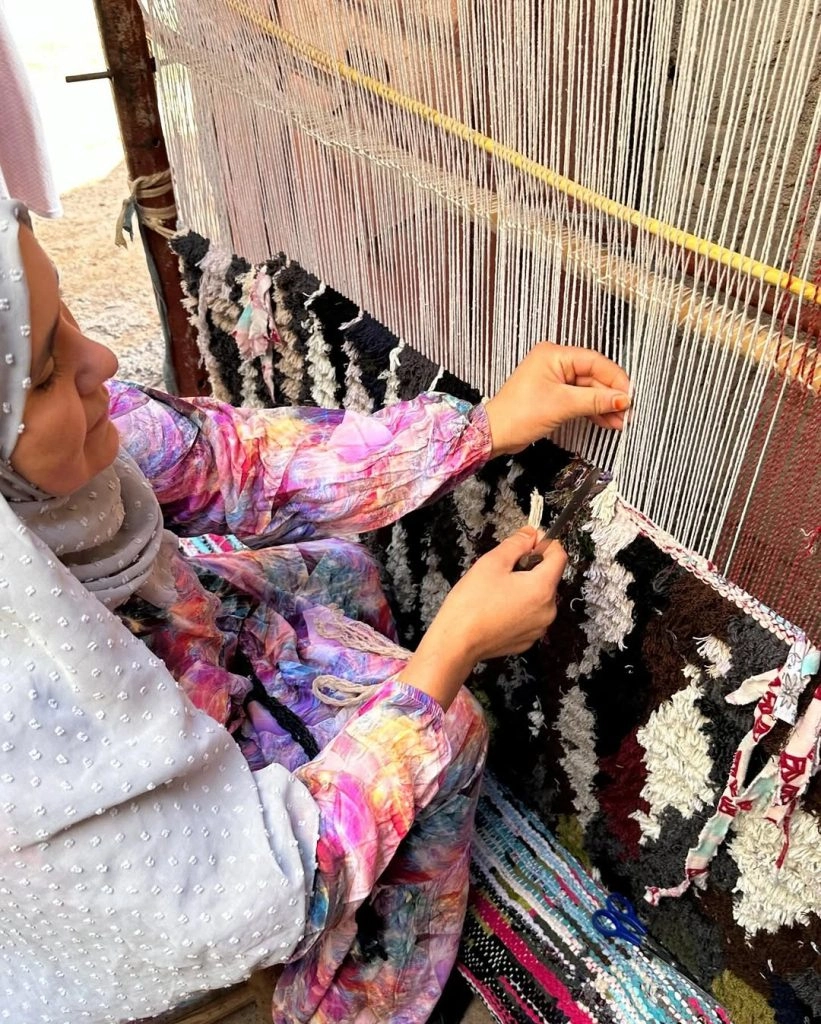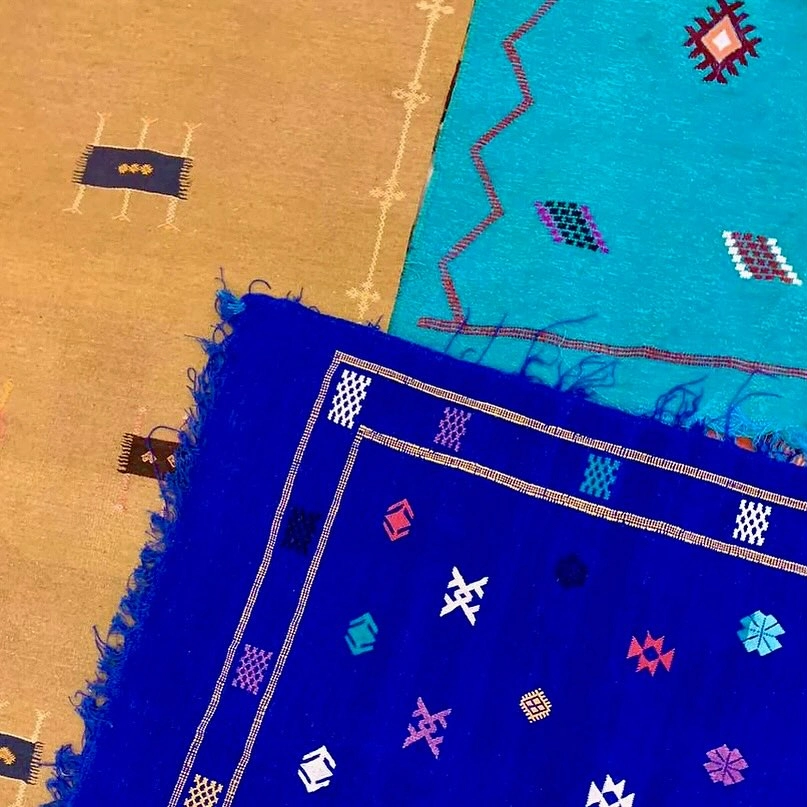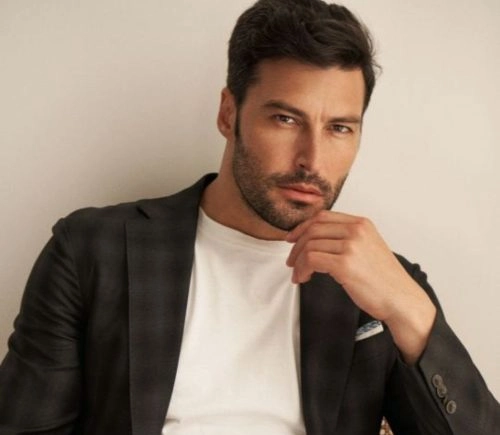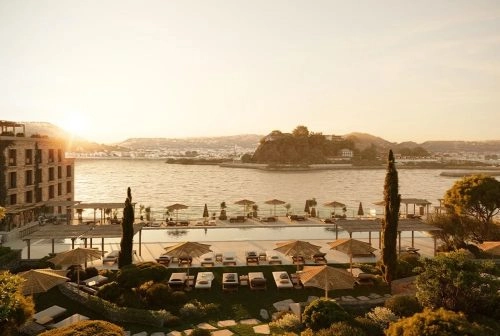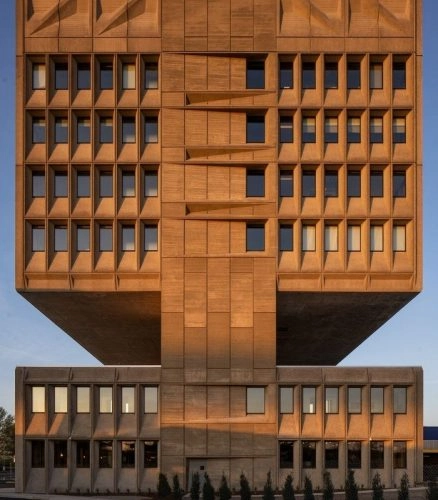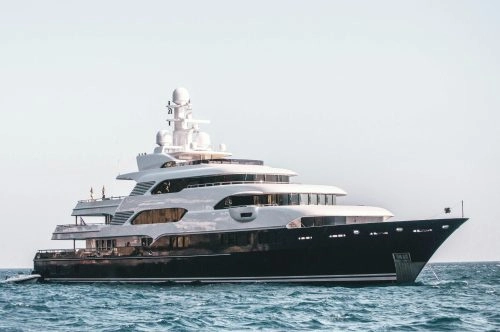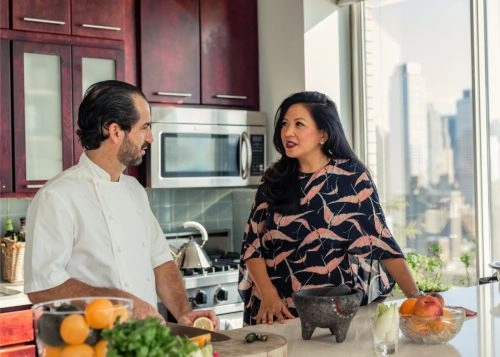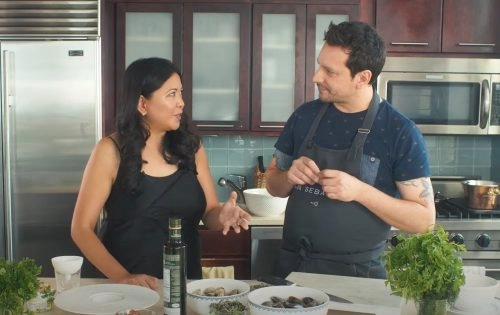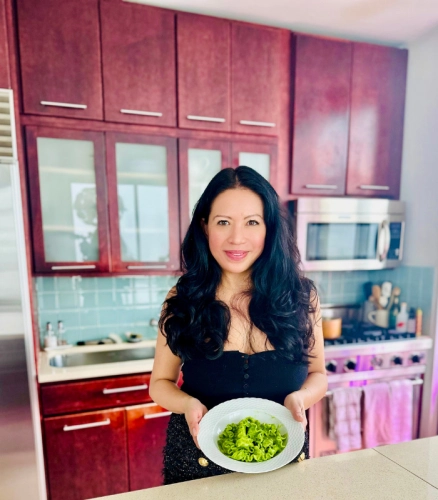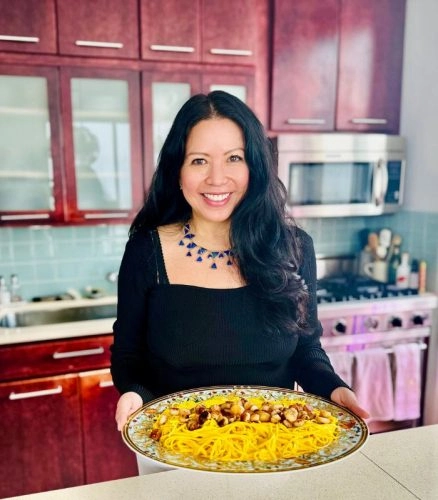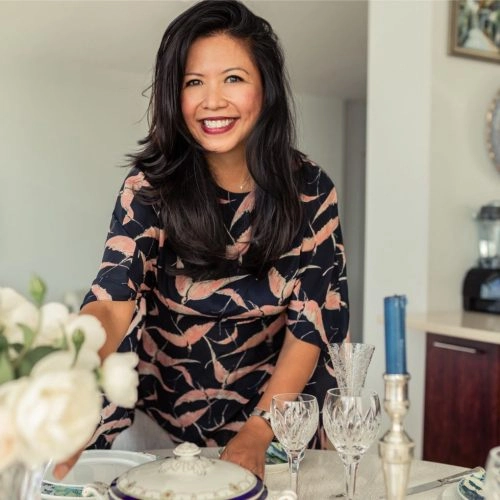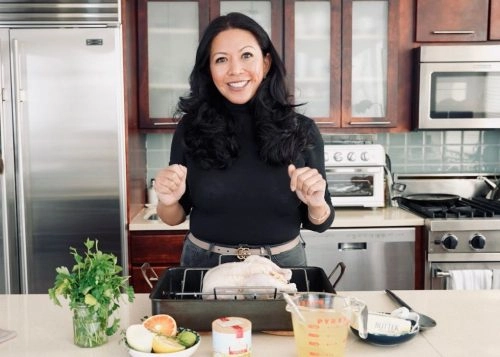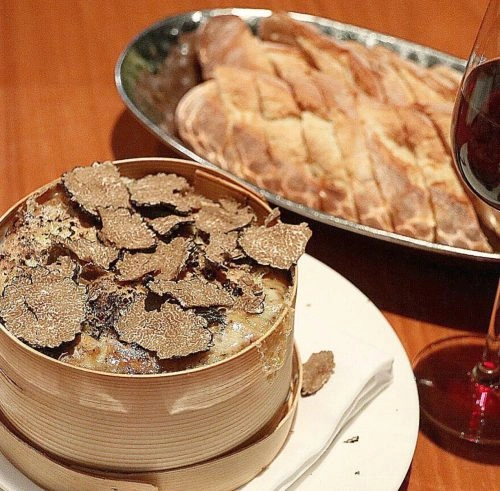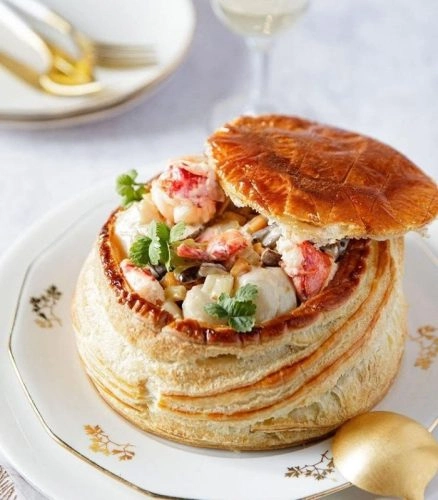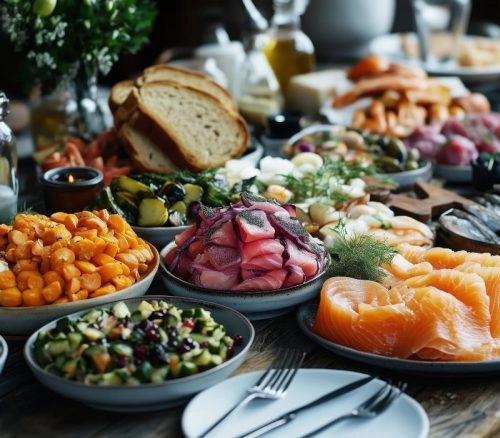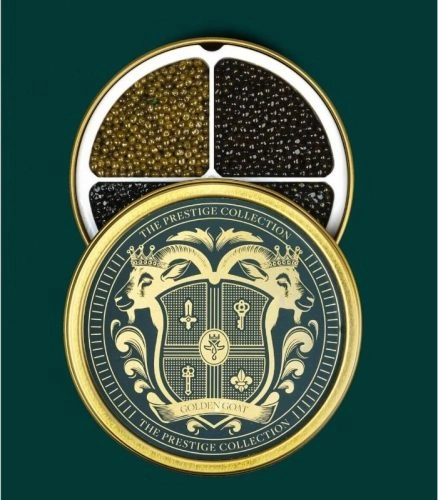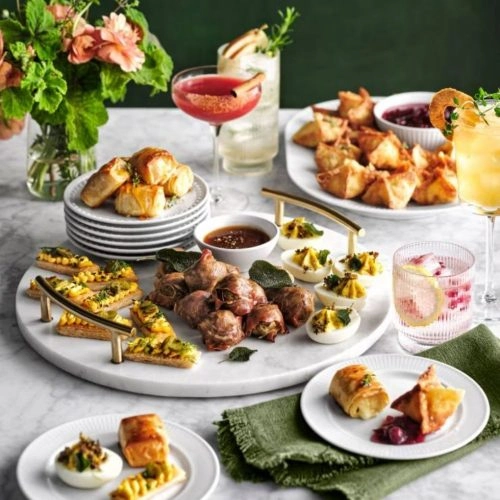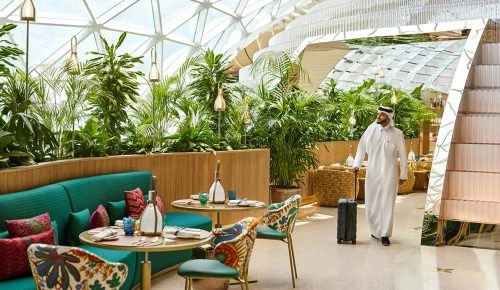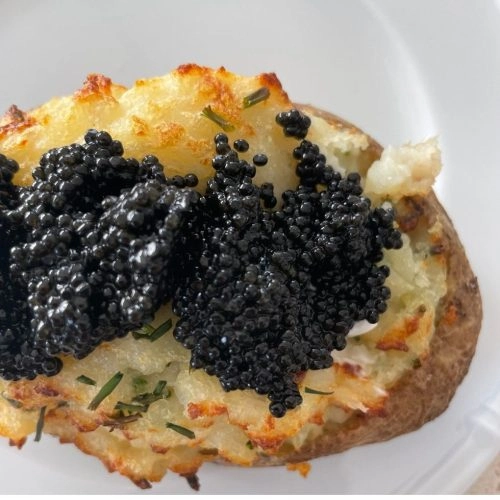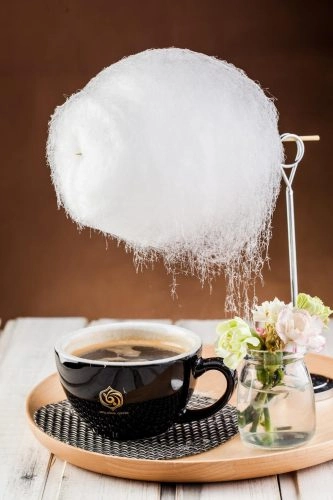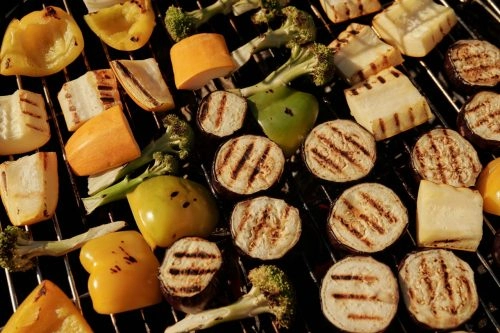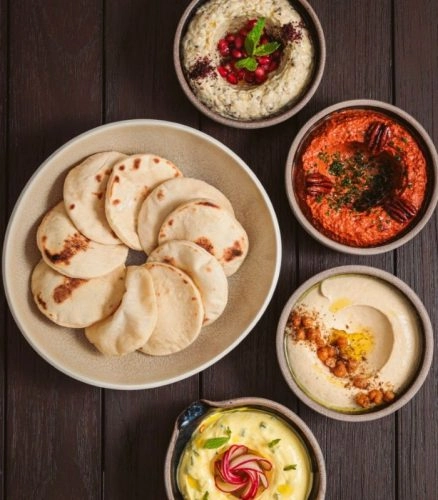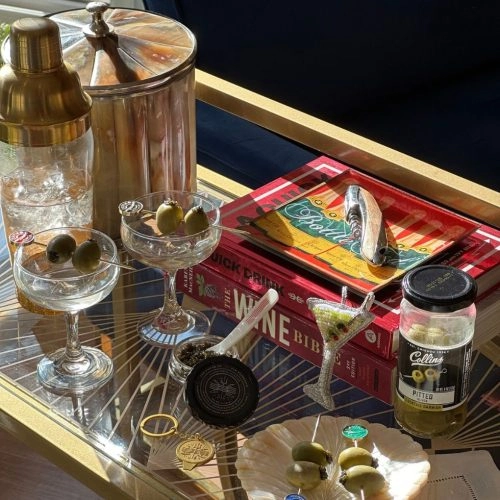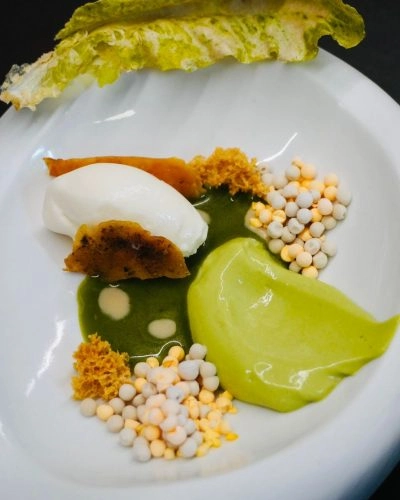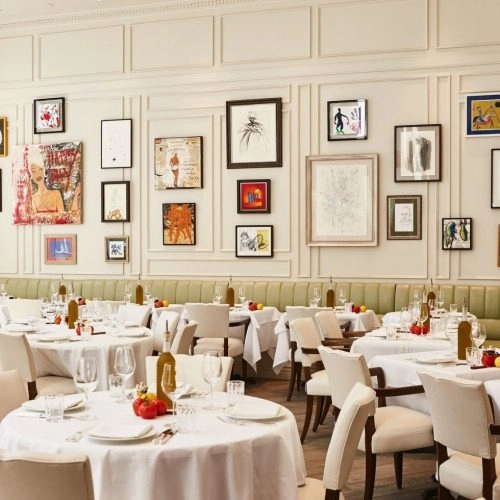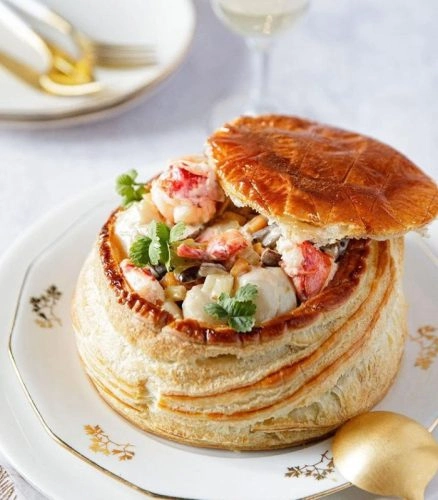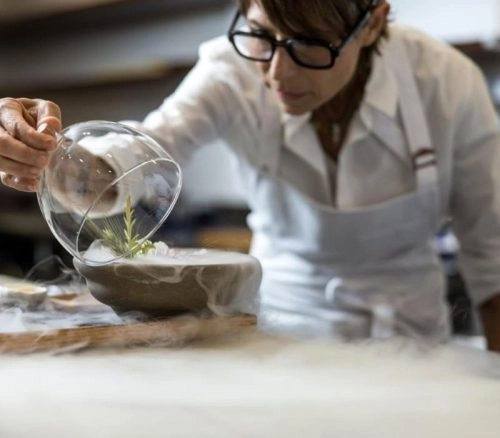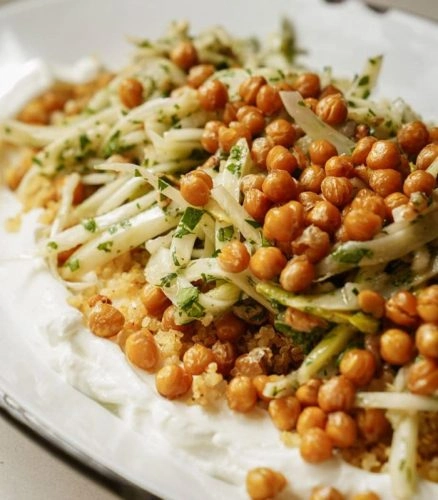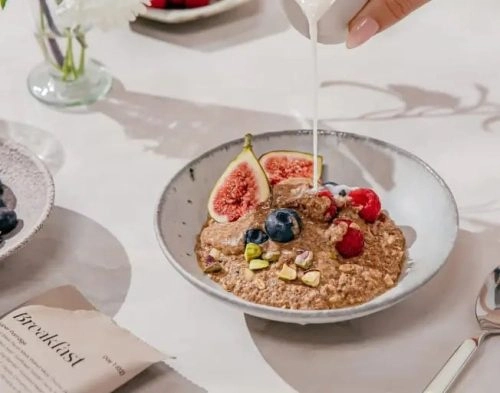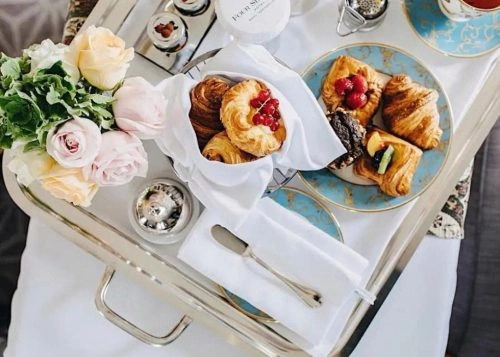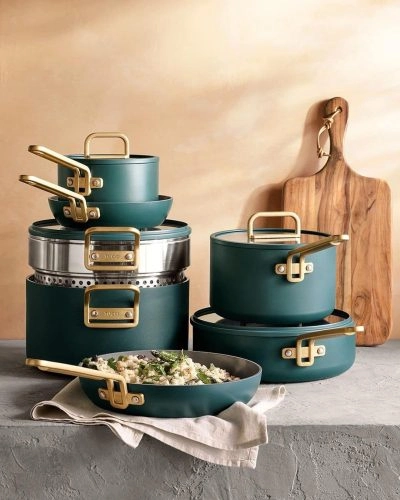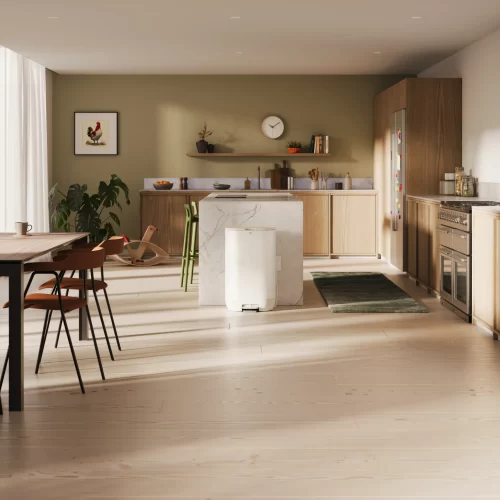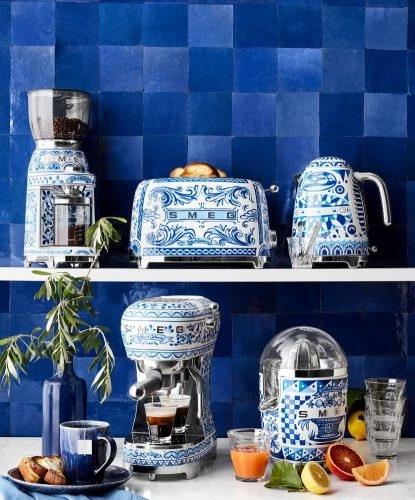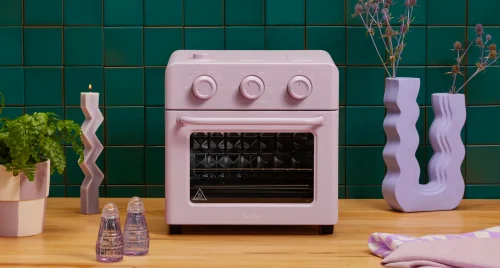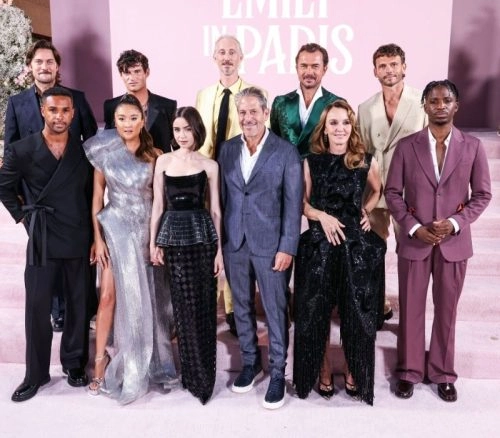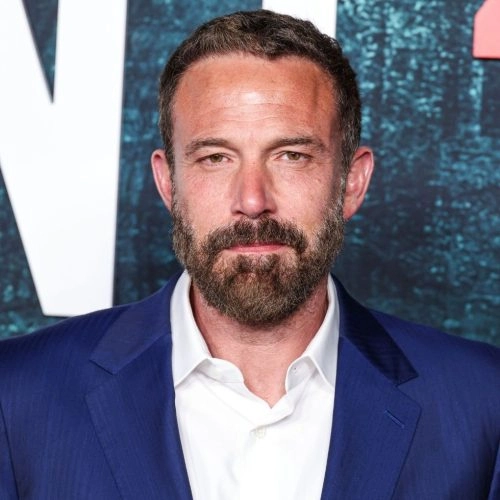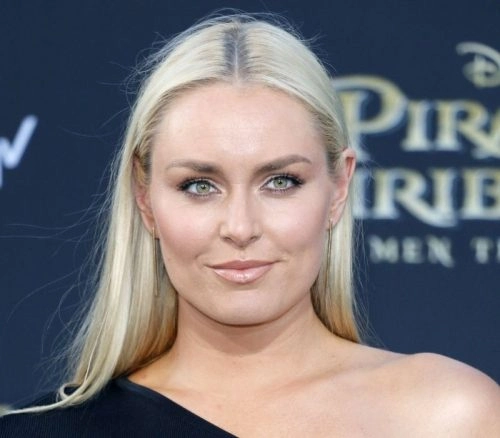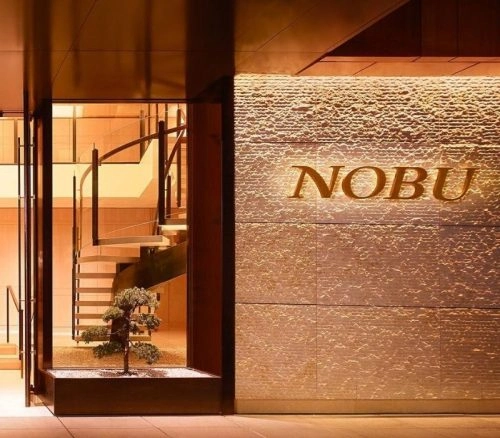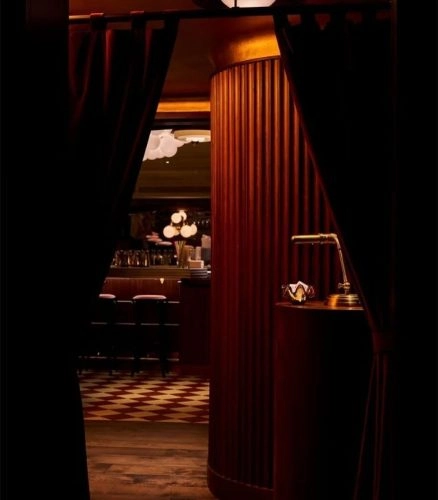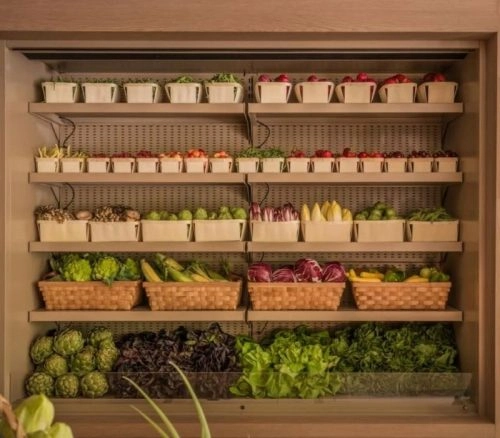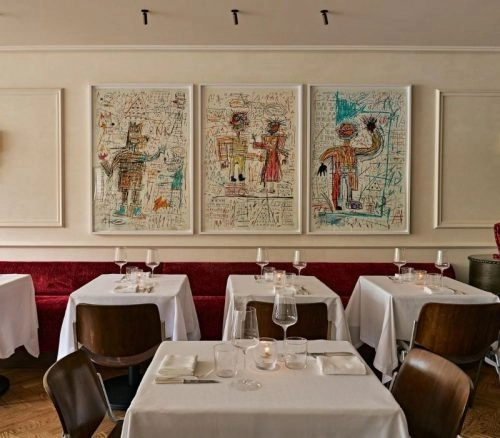Max Simon is a remarkably young visionary, whose life was transformed after spending a week in Morocco. Max is only 15 years old. Inspired by the warmth of the people and the artistry woven into every rug, he felt a deep connection to the communities he met. That experience sparked his mission to share authentic Moroccan craftsmanship with the world.
Sara Ben, a Berber woman from Marrakesh and co-founder of Inspiration Rugs, grew up surrounded by the weaving traditions of the High Atlas Mountains. She has long admired the strength and skill of the women artisans who create these pieces by hand. Her vision is to bring the beauty of these textiles into homes globally while empowering the Berber women behind them — supporting their livelihoods, preserving their heritage, and helping their communities flourish.
Together, Max and Sara combine youthful passion and cultural heritage to share Moroccan rugs that are both luxurious and deeply meaningful. We sat down with Max and Sara to learn about them both individually, and of course, their business of Inspiration Rugs.
Max, can you tell us a little bit about your background?
Max: I’m from California, Los Angeles. I grew up by Venice for the first 12 years of my life. Then, I was traveling around Europe, South America, North Africa and some parts of Asia for two years straight. We’d switch places about every month and a half. Such a cool experience. And as of this August, I just moved full-time to Costa Rica, Guanacaste, Playa Negra. So it’s a lot of surfing. I go to high school here, and it’s very nice.
And what is your relationship with Morocco?
Max: Last November, I went there for the first time. It was a week-long trip. My whole family was going, some of my mom’s friends also joined. It was just a cool vacation. Usually, when we would travel, it wasn’t quite a vacation. We were still doing home-school. But, this one week was going to be a vacation, which we were all looking forward to.
So we get to Morocco. It looks like a completely different world. And our tour guide, her name was Sara. She’s one of the few women tour guides in Marrakesh, as it’s a very male-dominated industry, because the culture in Morocco is a little more conservative. So, we got to explore the market that week. We got to see like all the beautiful crafts. We stayed in a couple of beautiful hotels, stuff that I’ve never seen before, awesome architecture.
Me and my siblings just had so much fun. The food was so good. We went to the desert, we saw camels. We went to a couple of cool villages. And we all just fell in love with Morocco there. And that was kind of my first experience in Morocco that was very impactful.
Max, at what point did that experience in Morocco evolve into starting a business?
Max: During the two years of traveling, I was getting a pretty solid entrepreneurial education for my dad. It was kind of built into our curriculum. So, that year, my goal was to create a startup. I was kind of looking for different opportunities throughout that year, and had a couple ideas here and there. But there was nothing that I really wanted to stick with, after a bit of market research. But, I always liked the concept of import-export.
So in Morocco, I just fell in love with the artistry there. I thought the artisans are super cool — just everything about it. So, we were at the market and I thought, “this whole rug thing is super cool.” And the next day, I thought: this totally what I should sell in the US. So, I asked Sara, and she wanted to manage inventory and logistics there. So we decided to be 50-50 co-partners. And that’s how it started. This was one year ago.
I also want to mention that I had a lot of help from my parents. They’re both entrepreneurs. So, I always had an interest in it, and did small things, small businesses, here and there. But they never told me to start a business, or anything like that. They were just really supportive, and so cool about it. And they taught me certain things throughout the [home-schooling] curriculum, so I knew certain things that I needed to apply to my startup. But, the whole time, I was just finding time to do it on my own, working on my own. It was a very independent thing, which was actually super cool for me. And, of course, my parents took me to Morocco.
Sarah, what was your experience of meeting Max and forming the partnership?
Sarah: While we were on tour, I think on the second or the third day, Max mentioned that he was always looking for something to do that attracts him. I saw the way he was looking at the carpets in Morocco, and it was very detailed. And once he mentioned it, I just immediately said “I’m in.”
Because also, I thought of my grandma, since I belong to the Berbers. The Berbers are known for weaving carpets. I saw my grandma weaving carpets her whole life. Even when she was quite old, it was like a hobby. In Berber culture, weaving carpets is mostly about saving and earning money. But for her, it was like therapy to her. So, this is how we came up with the idea.
What were the first steps to launching the business?
Max: So, off the bat, the focus was creating a very strong relationship with Sara. On that same trip, we went over to her family’s house, had dinner. When I got back to Seville, Spain, after that trip, I was calling her daily, checking in, just talking. At that point, we were still in the idea phase. And then, about three weeks after that, I went back to Morocco. I wanted to show her that I am all in, and I’m totally doing this.
That time, I went with just my mom, and it was a very cool trip. During that trip, we decided that we were going to go directly to the Berber woman artisans, so that we can share fair wages. Because originally, we were thinking about just going through a middleman. And while it was still low-ish prices, we didn’t know what they were paying the artisans. So, we couldn’t really be the mission-oriented business we wanted to be that way. And, after visiting a few villages, it was transparent that [cutting out the middleman] is totally what we should do.
And once you were out of the idea phase, how long did it take to get the business off the ground?
Max: On that trip, we started making relationships with different artisans in different villages. Kind of accumulating our inventory. My sister and my dad were working on our website at the time. We thought it was all super fun, we were having a good time. Light, no stress. It was more like a creative outlet than grinding to have a startup. You know, I’m 15, I can’t say I really need the money. You know what I mean? I don’t spend money. So all of it was just for fun.
And then, we launched our website February 1st of this year. That’s when we started making our first sales. On our Instagram, we also got some traffic and made some sales through that, too.
Then, we started reaching out to interior designers, which were some of our first “substantial” sales. And we were talking to different riads, and putting our rugs in their boutiques and stuff.
And that was pretty much the start of it. So, the idea was born last November, then a few months of [building] a foundation, financial organization, getting all of the inventory, setting up the website, Instagram, and a stop, like an LLC here, in Florida. And then we started making sales.
And what are your sales like now? Are you growing?
Max: We’re doing well. We’ve definitely branched out our network to interior designers. We’ve gone a little slow the past like few months, because I’ve been trying to focus on school. But we are making more sales. We also just got into a huge riad, which was cool, and put like 10 of our rugs there. And then also a ton of sales to a network of family and friends, and friends of friends.
With just with that, we’ve been able to establish a team of five people. We have two assistants and a Shopify web developer. And then it’s me and Sara on the main team. There are also a ton of people in Morocco who help out with a lot of stuff. The shipping and all that, and moving the rugs, and taking pictures. We’ve been able to get some really cool photography equipment.
So, all in all, we’ve definitely experienced significant growth.
What are some goals that you have for the Inspiration Rugs business?
Max: This summer, I’m going to Morocco for two and a half months. And we’re trying to open a brick and mortar store in Marrakesh. We’re looking forward to that. So, we want to keep that going. We also want to continue to expand our network of interior designers, and traffic on our website.
Sarah: We’re also talking about having our own custom pieces. Which means that once you buy it, it’s an Inspiration Rug. It’s not something else. It’s Moroccan, but still an Inspiration Rug. First, we will have to create our design, and then we will create our own styles. We’re thinking about launching that next year.
And, as Max said, we are thinking about having our own shop here, in Marrakesh. And maybe in LA in the future. So, it’s going to be like a showroom, but different. It’s not just the shop. We have ideas for it. And also, we are thinking about working with interior designers. So, having collections with different interior designers. Maybe one interior designer a year.
We are also thinking about hosting a retreat. It’s going to be about weaving. So it’s traveling, and discovering what is the inspiration [behind each rug]. So, people can also see where all those carpets are coming from.
What does this business mean to you?
Sarah: Inspiration Rugs is not just a business, but I will say it’s a mission. I will always say this same thing. We want to support women in the Atlas Mountain. But, also one of the main missions is: we want to keep girls in school.
It’s known in the villages here… I will start with the teachers. So, it is a mission of the teachers, not only to teach children in villages, but to first of all, convince families to send their child to school. So if they accept, they accept to send boys most of the time. And if they let girls go to school, they usually don’t let them finish because the high school is not in the village. So they have to move to another village, or the city nearby, and they cannot afford it. So if we are able to support women, they will definitely support their girl to finish school. This is what I meant by keeping girls in school. As long as you support those mothers, they will definitely let the girls continue.
And Max and I, we went to the villages together. It was actually at the end of the school year. There was a ceremony. And that was really about the same idea. They were speaking two languages: Arabic and Berber. And I was surprised to see a lot of women, a lot of mothers, joining the ceremony. That is really not common. So, when they spoke to them in Berber, they want the mothers to understand if the girl finishes school, she can [achieve things of] different levels. And she can also support her family.
What is your favorite part about running this business?
Max: Going to Morocco. I visit every few months. And the network of a ton of people that I’ve met. It’s been very cool.
Sarah: Well, I will say every part. All of it, [even the challenges]. For example — I live in the High Atlas Mountains. So, sometimes we need the carpets from different Atlas Mountains, because they are not all similar. So, each tribe has different carpets and different symbols. So when we have to get a rug from one Atlas Mountain to the other, it’s challenging. First of all, because of the language, to be honest. Because all of them speak different languages. So for me, I speak one, I understand the other one a little bit, but the other one is completely different for me. So, you need to find a translator first.
And also another thing for me, is that I have to keep the husband away, so I can make the deal with the lady, or tell the lady what to do. For example, if we have a custom delivery, then that’s challenging. And if we speak the same language, it’s a little bit easier. When the husband is around, she’s not really open to discussing everything. When he’s around, he’s the one who is trying to speak about the business, and I don’t want to speak to a man. I want to speak to her, because she’s the one who makes the carpet.
I’m a little tea-addicted, so I always ask for tea. That way, I can have more time to speak to her.
And how many different points of contact do you have like this now?
Sarah: I would say now I have four. And way different ones.
And you have to travel in person to each one of these and communicate?
Sarah: It depends. Sometimes I travel by myself, but mostly with my dad. But now I have the contacts. So, sometimes I just make phone-calls. Now, with WhatsApp, it’s a little bit easier.
Max, what would you say is your biggest challenge with running this company? Is it finding time to work on it with school, etc.?
Max: I wouldn’t say finding time to work on it. I always find time to work on it, an hour here and there. It’s fun and interesting to me. I would say the challenge is, maybe not telling everyone about it. Trying to stay a little bit conservative about everything.
Who would you say is your primary target clientele for these rugs?
Max: As of right now, interior designers in Guanacaste Costa Rica. That’s who we’re targeting right now.
Right now, we’re kind of shifting our inventory a bit — because we were kind of selling to everyone at the beginning. We didn’t really have like a target market. So now, we’re trying to start building our Instagram, plus our price range, plus the kind of rugs we’re getting for specifically Costa Rican new homeowners who are actually very interested, because there’s no competition in Costa Rica. And interior designers specifically, who are bringing those different furniture pieces into these homes. So that’s who’s interested in the target market that we’re focused on right now, to test out how that would work. Really focusing on one group of people.
Sarah: And if you saw on our website, we are now focusing on two collections. The Blue Alliance and Azila, which is from the High Atlas Mountain and the Anti-Atlas Mountain. And definitely we will add more to our collection. But for now, we just launched the business.
Do you have a favorite rug from the ones that you are selling on the website?
Sarah: The one that’s still my favorite is Taznakht. So, two. The Taznakht has two techniques of weaving and has two different types of wool. So, it has the flat weave and also, it has the knotted technique. Then the Benoit line, which is “classic.” It’s fancy, though, I would say. Fancy classic. So it fits anywhere and goes with everything. It’s “passe-partout,” as we say in French. Wherever you put it, it goes perfectly.
Max, how do you balance school with running a business?
Max: It’s difficult sometimes. That’s why I’m not really doing it right now. I’ve taken a break, because I’m focused on school, and the rest of the time, I just want to surf and chill with my friends. Surfing is the most fun thing for me. I just love being outdoors. I don’t like watching TV and stuff like that. I always want to be active. Sometimes, I do an hour of work in the morning, and then get the rest of the day to have a clear mind to go out and play. It’s the biggest thing for me. I think I’ve developed a pretty strong balance.
What do you want to do when you graduate high school?
Max: I want to go to the University of Hawaii after high school. For all the surfing and hiking. And I will probably major in Business. I would love to keep learning about entrepreneurship and how to run a startup effectively. And then, I don’t know. Maybe I’ll work super little or retire young, and get to live simply and have a ton of fun.
And Sarah, what do you balance Inspiration Rugs with?
Tours. Traveling around the country and speaking about Inspiration Rugs. And it is inspiring.
One of the challenging things in the market in Marrakesh (or any other city), is to get a carpet. So from, choosing a piece to knowing the story about the piece. Some people, they bring pictures of the pieces they want to buy. They already know what they see, all the different colors we have and the pieces we have. But they completely change what they choose at the end. This always fascinates me. And I always tell people: it’s not just a piece. It’s not just a color. There’s a story behind it. So all the symbols written on there — they have a meaning. So people are more fascinated about the story behind carpets. It’s like a painting. When you buy a painting, you see just colors. But when they tell you the story behind it, it’s a different thing.
Is there anything else about Inspiration Rugs that you would like our readers to take away from this?
Max: Just really that our partnership is super cool and a big part of Inspiration Rugs.
Sarah: I think also that we want to impact our surroundings, not just to make money. And we work directly with women, which is very hard to do here in Morocco. I always do work with someone in the middle. But working with women, especially me, as a girl, I can do it. In the urban lifestyle, you cannot, as a man, speak to women. But when it’s a lady, it’s easy. So we definitely want to make changes. I’m very picky about who we work with — we always look. Even during my tours, I pick drivers. I will pick this driver over this driver, because this one is in need. We are both picky. And we want to support people.
Max: Yeah, we are definitely motivated in the mission-oriented aspect of it all, and in helping people in general.
Other Articles You’ll Like
The Oberoi, Marrakech
Top Hotels in Marrakech
Kasbah Tamadot Morocco
FAQs
Q: How old is the brand Inspiration Rugs?
A: Max Simon and Sarah Ben started the business one year ago, in November 2024.
Q: How old is Max Simon?
A: Max is 15 years old.
Q: How did Max and Sarah meet?
A: Max and Sarah met when Max visited Marrakesh with his family. Sarah was their tour guide.

